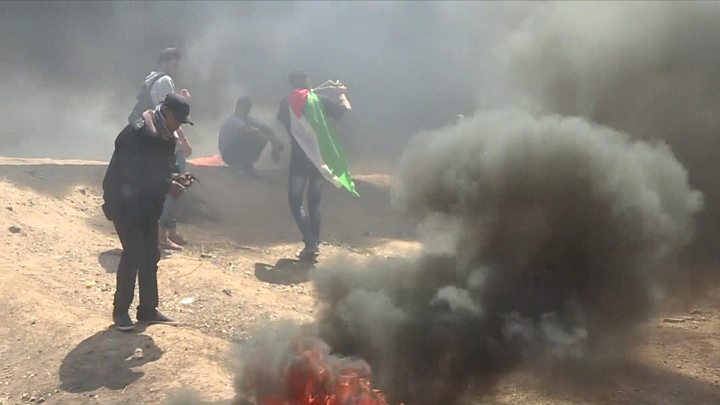
At least 18 Palestinians in Gaza have been shot dead by Israeli troops after bloody clashes erupted on the border, Palestinian officials say.
The violence comes before the opening of the US embassy in Jerusalem, which has infuriated Palestinians.
They see it as clear US backing for Israeli rule over the whole city, whose eastern part Palestinians lay claim to.
Top US officials, including President Donald Trump's daughter and her husband, will attend the event.
Gaza's Islamist rulers, Hamas, have led mass protests in a "Great March of Return" for the past six weeks. Israel says demonstrators are trying to breach the border fence.
A 14-year-old boy was among those killed on Monday and more than 900 people were injured, the Hamas-run health ministry said.
Palestinians hurled stones while the Israeli military used snipers as black smoke poured from burning tyres.
Israel's army said 10,000 "violent rioters" had gathered along the security fence and that its troops were operating "in accordance with standard procedures".
What is going on?
In Gaza, Palestinians have held weekly protests in the run-up to their annual commemoration of what they call the Nakba or Catastrophe, when hundreds of thousands of their people fled their homes or were displaced following the foundation of the Israeli state on 14 May, 1948.
More than 60 Palestinians have been killed since the protests began. Thousands more have been wounded.
Hamas, which is in a state of conflict with Israel, had said it would step up protests in the lead-up to Tuesday, the official Nakba commemoration.
It says it wants to draw attention to what Palestinians see as their right to return to ancestral homes in what became Israel.
"Today is the big day when we will cross the fence and tell Israel and the world we will not accept being occupied forever," a science teacher in Gaza, Ali, told Reuters news agency.
Israel says the protests are aimed at breaching the border, which it heavily guards, and attacking Israeli communities nearby.
Why is the embassy move so controversial?
The status of Jerusalem goes to the heart of the Israeli-Palestinian conflict.
Israeli sovereignty over Jerusalem is not recognised internationally and, according to the 1993 Israel-Palestinian peace accords, the final status of Jerusalem is meant to be discussed in the latter stages of peace talks.
Israel has occupied East Jerusalem since the 1967 Middle East war. It effectively annexed the sector, though this was not recognised by any countries until Mr Trump's declaration in December 2017.
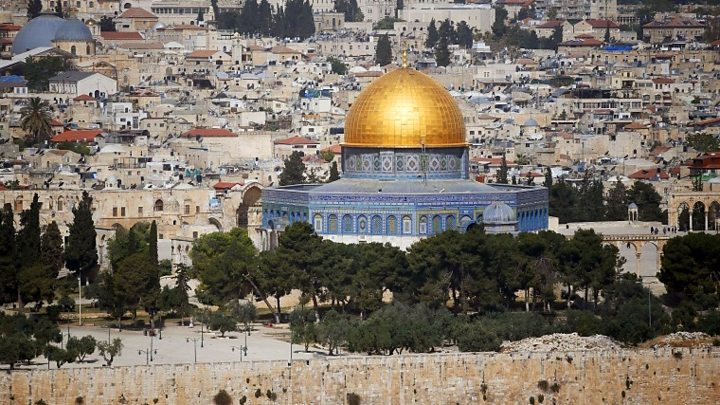
Since 1967, Israel has built a dozen settlements, home to about 200,000 Jews, in East Jerusalem. These are considered illegal under international law, although Israel disputes this.
Various countries once had embassies based in Jerusalem but many moved after Israel passed a law in 1980 formally making Jerusalem its capital.
President Trump's decision last year to recognise Jerusalem as Israel's capital broke with decades of US neutrality on the issue and put it at odds with most of the international community.
But is it good for peace?
By Jeremy Bowen, BBC Middle East editor, Jerusalem
The embassy move is the culmination of one of the best weeks in the political life of Israel's Prime Minister, Benjamin Netanyahu.
First President Trump kept his promise to pull out of the Iran nuclear deal. Now the US embassy is moving.
Placards in Jerusalem praise Mr Trump. The local football club, Beitar, infamous for fans who chant "death to Arabs", has included "Trump" in its name.
The embassy move has been rejected by the main allies of Israel and the US. Palestinians are protesting in their thousands in Gaza.
It is much more low-key in the West Bank, including occupied East Jerusalem.
The embassy move is good for the Netanyahu government, good for President Trump's base and makes most Israelis pleased but there is no evidence to back Mr Netanyahu's claim that it is good for peace.
What will be opened and who will attend?
A small interim embassy will start operating on Monday inside the existing US consulate building in Jerusalem.
A larger site will be found later when the rest of the embassy moves from Tel Aviv.
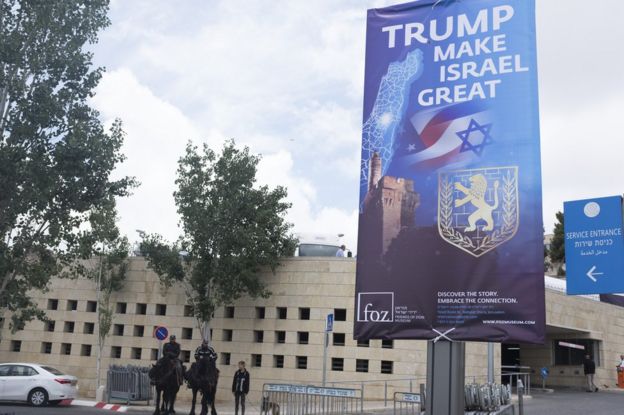 GETTY IMAGES
GETTY IMAGES
The opening ceremony was brought forward to coincide with the state of Israel's 70th anniversary.
President Trump is expected to address those attending Monday's event via video link.
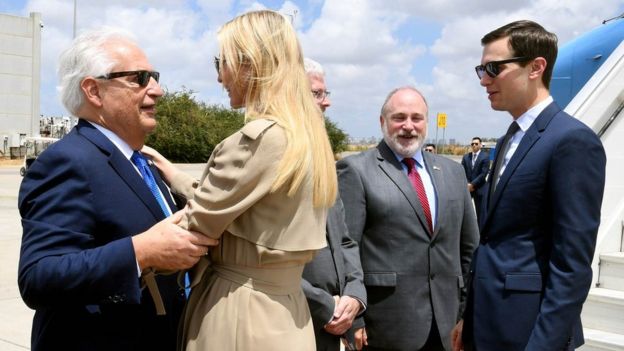 REUTERS
REUTERS
Alongside Ivanka Trump and Jared Kushner, who are both senior White House advisers, Treasury Secretary Steven Mnuchin and Deputy Secretary of State John Sullivan will be at the ceremony.
The EU has voiced strong objections to the embassy move.
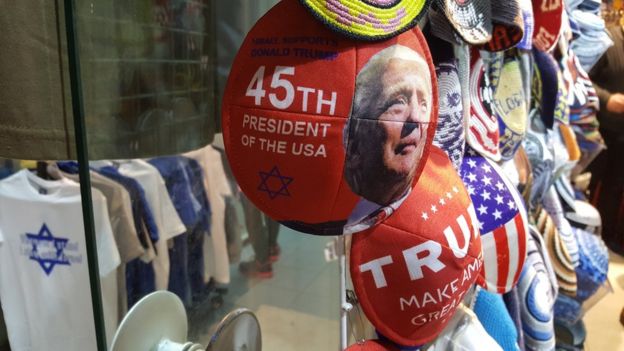 RAFFI BERG
RAFFI BERG
President Trump's decision to recognise Israel as Jerusalem's capital and move the embassy is strongly supported by Israeli Jews across the often fractious political spectrum.
Palestinian Authority President Mahmoud Abbas, however, has described Mr Trump's decision as the "slap of the century". He says the US can no longer be considered a neutral broker in on-off Israeli-Palestinian peace talks and cannot have any future role.
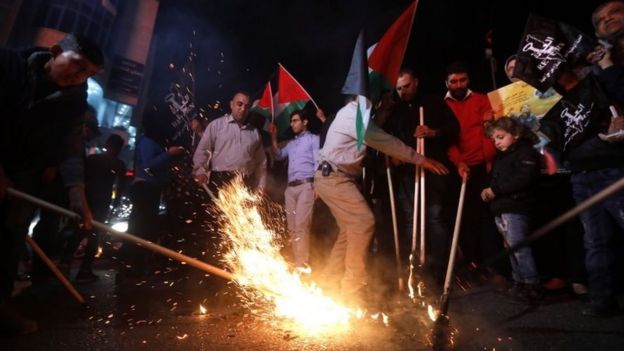 EPA
EPAMiddle East
Rivals of Iraqi PM 'make election gains'
- 14 May 2018
- Middle East
Iran envoy seeks nuclear deal pledges
- 13 May 2018
- Europe

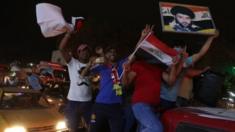
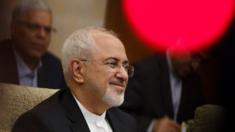

No comments:
Post a Comment